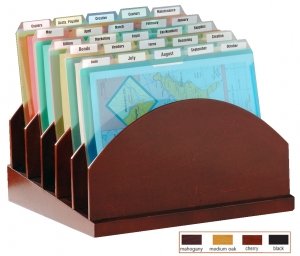|
|||||||
You need to keep your tax records for 10 years! |
 |
|
Views: 2966
|
Thread Tools |
Rating: 
|
|
|||||||
You need to keep your tax records for 10 years! |
 |
|
Views: 2966
|
Thread Tools |
Rating: 
|
|
#1
|
||||||||
|
||||||||
|
.
The information age has not done away with the need to keep your paperwork handy. It has only felicitated mode of storage! Much of the paperwork is connected to your income tax returns filing. For you, that means you need to be more organized with paperwork and keep them handy in physical or electronic format.  The information age has not done away with the need to keep your paperwork handy. It has only felicitated mode of storage! Much of the paperwork is connected to your income tax returns filing. For you, that means you need to be more organized with paperwork and keep them handy in physical or electronic format. The Income Tax Authority might not ask for any supporting document along with your Income Tax Return (ITR) form at the time of filing your returns. This does not mean no supporting documents are required. In fact, you need to keep all tax related documents for 10 years! Under Section 139 (1) of the Income Tax Act, an assessee has to file returns. Under Section 143 (2), a notice can be sent within 12 months from the end of the month in which the return is furnished. After this period, the assessing officer cannot ask for details or copies of returns unless he has strong grounds to believe the income has been understated in the returns. In such cases the case may be re-opened for search and seizure. Which documents should you keep handy? Itís easy to land yourself in a soup with the Income Tax Authorities if you donít have your papers in order. Even if you sound convincing, you have to back up your argument with documents. In fact, any well-filed document, however minor, saves unnecessary hassle. Income tax authorities have spruced up their tax collection efforts. This implies that you should organize and file some basic paperwork which can help you when needed. These include bank statements, investment-related documents, bills pertaining to tax deductible expenses, ITR acknowledgments, income tax challans, supporting documents to claim exemptions, etc. Following is a list of important documents that you should keep handy :
Why do I need to keep Tax Records for 10 years? If the income escaping assessment is less than Rs 25,000, the case can be reopened in four years. If above Rs 25,000, but below Rs 50,000, the case can be scrutinized in four to seven years. And the case can be reopened in seven to 10 years of filing returns if the authorities believe that the understated income exceeds Rs 50,000.
This means your case can be opened for scrutiny any time between the return filing year to 10 years from return filing year! In absence of proper documents to support for income tax filings and authenticity of your income as stated in your Income Tax Returns, you may find it extremely difficult to convince Income Tax Authority. Apart from undergoing mental agony, you may also face financial penalty for concealment in the event of a search and seizure. If concealed income is discovered in the year in which returns were filed, taxes have to be paid at the current rate. After that, 60 per cent of the undisclosed income has to be paid as penalty. Conclusion Keeping these documents will not only help you in filing your income tax returns but can also provide a good starting point for you prepare your personal financial plans, study expenditure patterns and make your own personal budget estimates. Although, Income Tax Authorities are moving towards a paper-less filing or e-filing, you need to keep the supporting documents in paper form for at least two years. Earlier supporting documents can be archived to electronic form and kept at a safe place. You should also back-up your electronic documents at regular intervals lest your hard drive fail. |